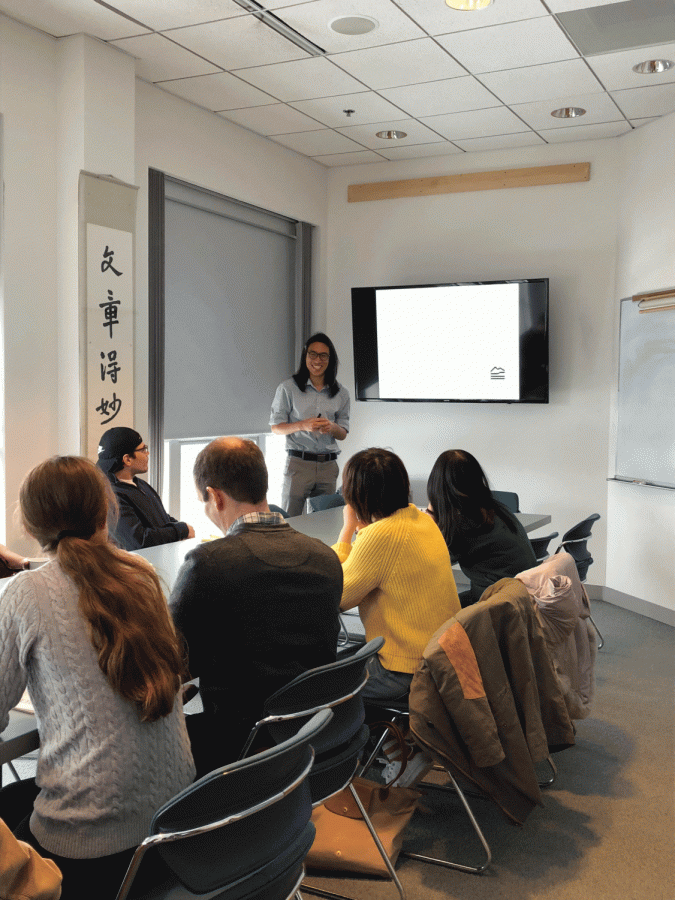Nathan W. Chan Discusses the Effects of Climate on Leisure Demand
Professor Chan presents his research on the relationship between climate and non-market activities to an audience of students and faculty.
Professor Nathan W. Chan from the Resource Economics Department at the University of Massachusetts Amherst presented his research paper entitled “The Effects of Climate on Leisure Demand: Evidence from North America,” in Persson Auditorium on Friday, February 23. The lecture was part of the Colgate-Hamilton Economics Seminar Series.
Chan’s primary research interests operate within the fields of environmental economics and public economics. He began with an explanation of the rationale of his research on the effects of climate change on non-market activities, pointing out that it is important to measure the costs incurred by the impact of climate change that could affect economic policies.
“One of the challenges is that there is extensive research on market-based damages such as agricultural output and labor activities, but information of non-market outcomes of climate change is sparse. My purpose is to contribute to existing research on how non-market activities are affected by climate change,” Chan said.
Chan then introduced the specific research topic and methodology. He examined the correlation between daily temperature and weather and the usage of Bikeshare Program, a sharing economy system for people to rent bikes.
“We used data from Bikeshare Program in 16 cities across North America and over seven years,” Chan said. “The big data analysis provides credibility to the research.”
Chan revealed that there is a causal relationship between bike usage and weather conditions. He projected his findings of the correlation to cycling and outdoor recreation in America in the future. Cycling, he suggested, is a good representative of all outdoor leisure activities based on the data he obtained. Based on the evidence, with the increase in projected temperatures in the future, there would be an increase in aggregate demand for outdoor leasure activities. Annual consumer surplus for outdoor recreation would increase by 21 billion by 2060.
Chan argued his research reveals that though climate change would incur large economic costs on market activities, this cost may be offset to a small extent by outdoor leisure activities. However, he clarified that this does not mean people should not collaborate to mitigate the effects of climate change.
“Twenty-one billion sounds like a big benefit, but when we compare to other damages, they are one order magnitude down,” Chan said. “They are not completely inconsequential, but the overall annual damage [brought by climate change] is estimated to increase by 500 billion.”
Associate Professor of Economics Carolina Castilla suggested that environmental pollution associated with climate change may reduce leisure activities, which can only be observed in the long run and in a country that has more serious environmental problems.
Senior Bonie Zhou voiced her interest in this topic.
“I am impressed by his research. It is a really interesting approach to assess the effects of climate change. He made good use of the data sets and yielded robust results. Although I had some doubts about his research in the beginning, he was able to clear my doubts later by addressing the possible assumptions and limitations,” Zhou said.
Senior Lucas Cooper has found the Economics Seminar Series useful for his learning.
“It is a great opportunity to be with many faculty members and hear their insight. It is also great that I can learn about how to present a paper and respond to questions. As a senior, I am currently working on my thesis, and I guess I can use some of the skills in my own work,” Cooper said.
Contact Karen Zhang at [email protected].




